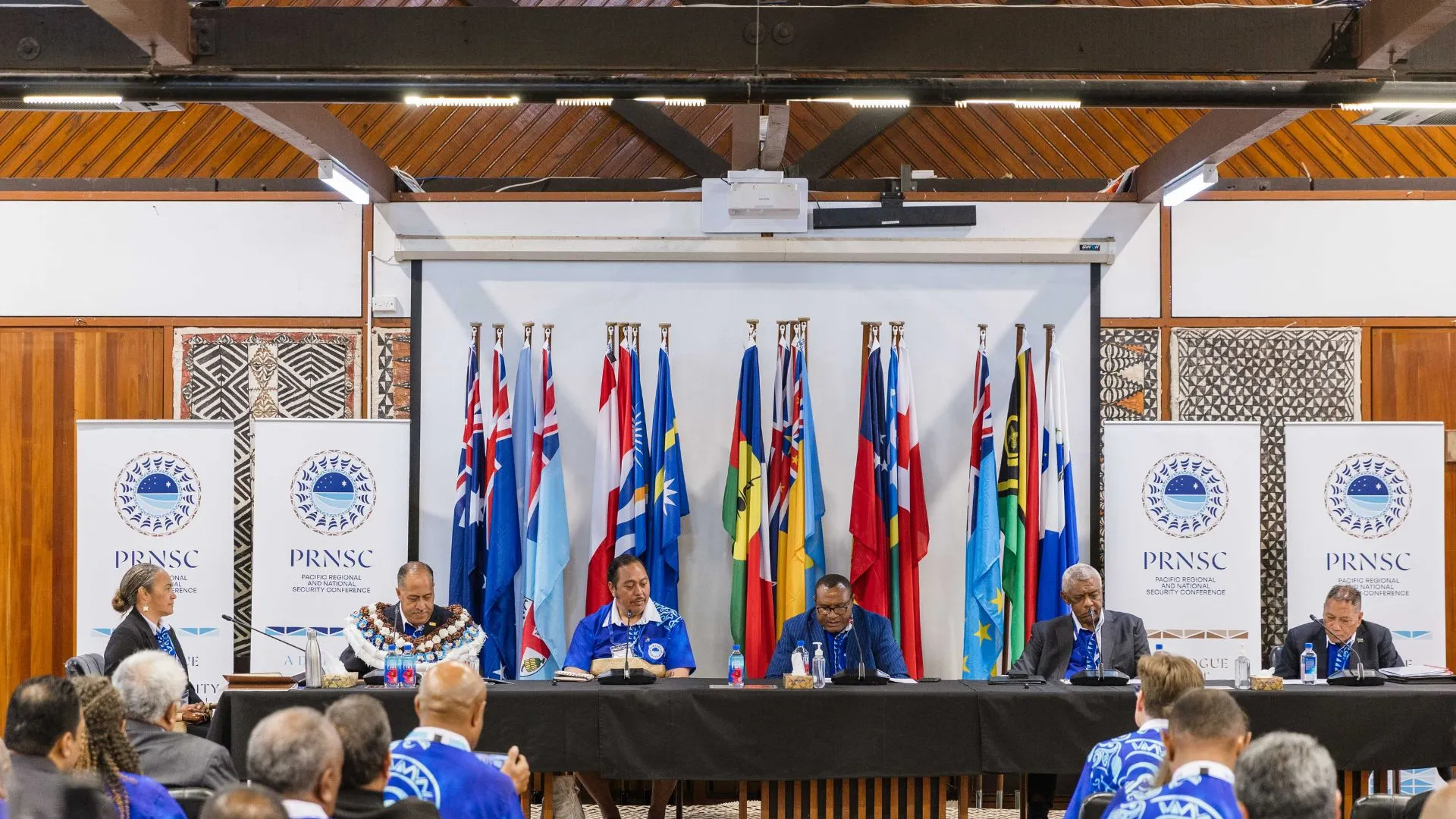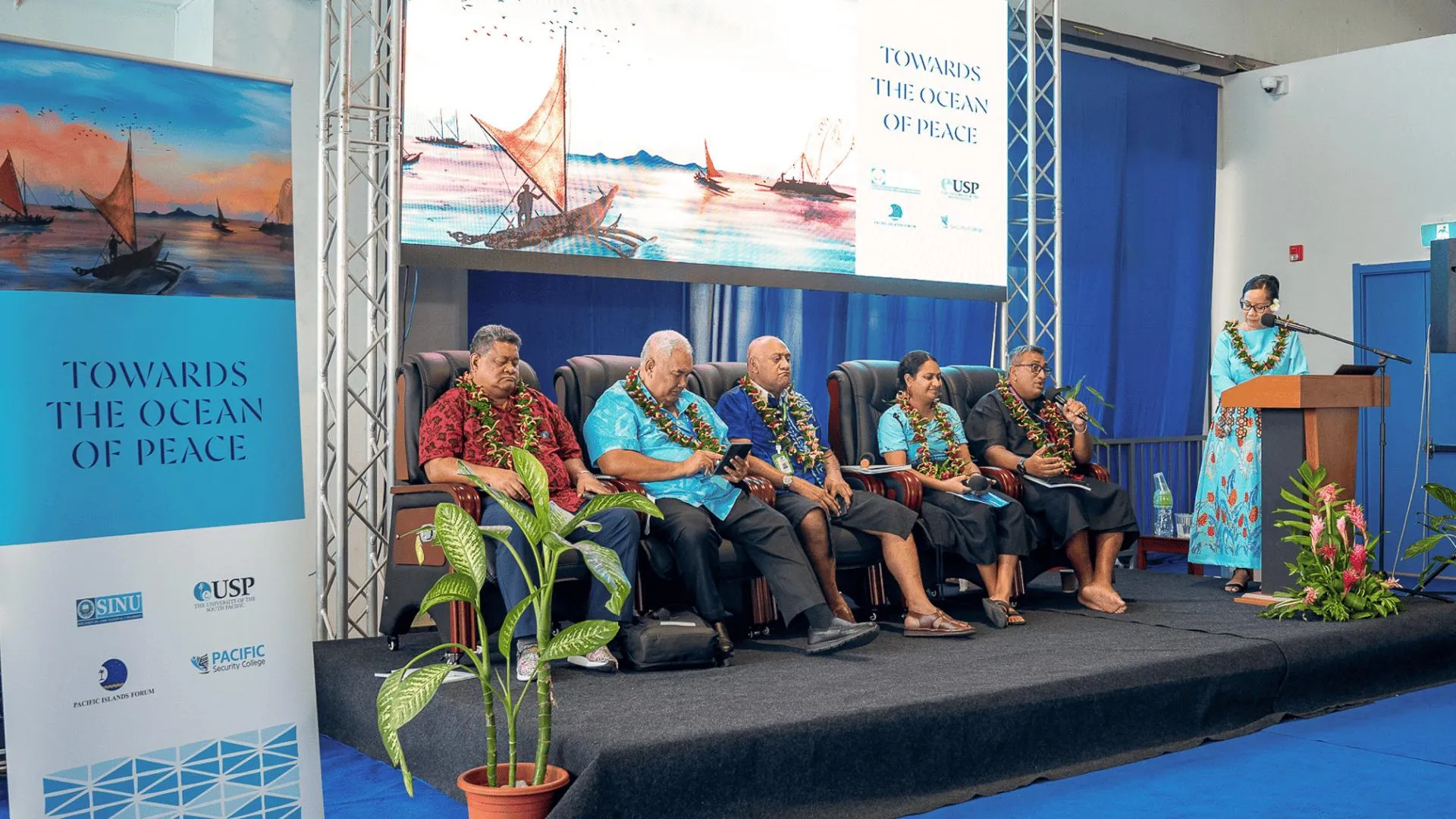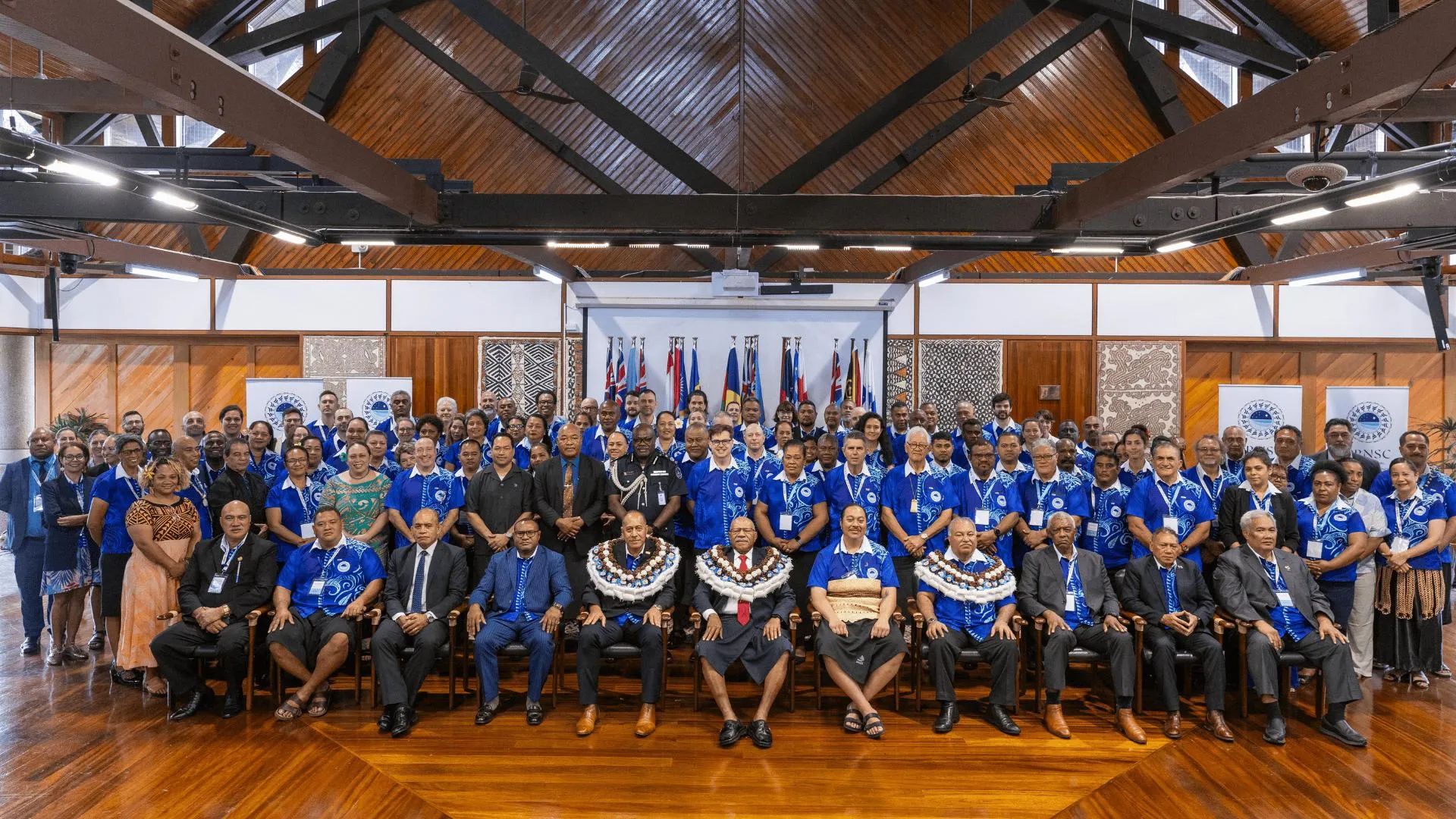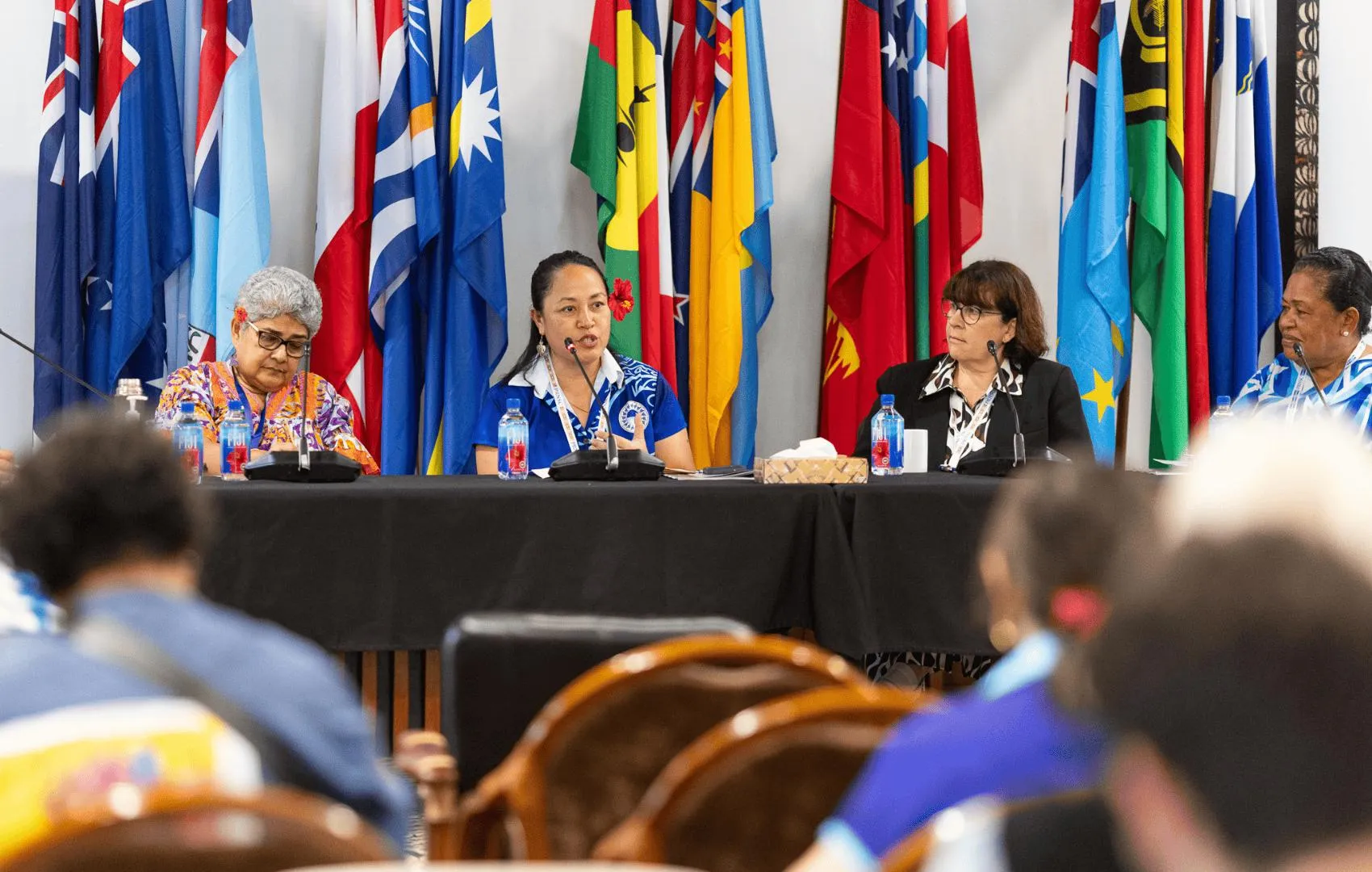Pacific leaders unite behind call for regional security and shared peace

From left: Ms Anna Naupa, the Hon Dalton Tagelagi, His Royal Highness Crown Prince Tupouto’a ‘Ulukalala, the Hon Dr Billy Joseph, the Hon Pio Tikoduadua; and the Hon Peter Shanel Agovaka.
Senior Pacific political leaders have called for urgent regional unity, a stronger homegrown security framework, and peace rooted in Pacific values during the first session of the 2025 Pacific Regional and National Security Conference in Suva.
Moderated by Ms Anna Naupa, the Political Leaders on Pacific Peace, Security and Defence panel brought together the Prime Minister of Niue, the Hon Dalton Tagelagi; Tonga’s Minister of Foreign Affairs and Armed Forces, His Royal Highness Crown Prince Tupouto’a ‘Ulukalala; Papua New Guinea’s Defence Minister the Hon Dr Billy Joseph; Fiji’s Minister for Defence and Veteran Affairs the Hon Pio Tikoduadua; and Solomon Islands Foreign Minister the Hon Peter Shanel Agovaka.
Niue Prime Minister Hon Dalton Tagelagi said Pacific security strategies must reflect both national priorities and regional solidarity. Niue launched its National Security Strategy this year.
“Let’s get all our national priorities, our national strategies together and let our Secretariat work and design a framework that will ensure that suits and helps everyone, a big blue Pacific continent family,” he said.
“A healthy planet will bring healthy people and people will live together. That’s when you’ll see the peace and harmony when everyone is happy.”
Papua New Guinea’s Defence Minister Hon Dr Billy Joseph flagged climate change as the region’s most serious threat not just environmentally, but to security itself.
“Climate change is an existential threat for many of our small Pacific Islander countries,” he said. “This is not just an environmental issue, but a serious security concern, as displacement and resource scarcity can fuel instability.”
Minister Joseph also raised concerns over illegal, unreported and unregulated (IUU) fishing, while stressing the importance of safeguarding sovereignty amid intensifying global interest.
Tonga’s Crown Prince, His Royal Highness Tupouto’a ‘Ulukalala, reflected on the need to define the region’s vision of Peace: “I think wording it as an Ocean of Peace is a very important part for us to understand. If you say security, we might be thinking about the human security, climate change, but if you say peace, we understand what you mean. I think we need to explore more what is our definition of peace, what kind of peace do we want,” he said.
“I think our security role is to secure our future. And I think on our development side, it’s for them to secure a better future for our children than us.”
Fiji’s Minister Tikoduadua urged leaders to ground Pacific security in shared values and trust in institutions.
“Our biggest strength is our people,” he said. “We’re all related in a way. And that is our biggest strength.
“If there is one thing that I would like to ask this forum to talk about for these next two days: let’s talk about veiwekani. Let’s talk about relationships, relativity.”
Minister Agovaka, from Solomon Islands, acknowledged the regional frameworks and declarations that had been developed in recent decades, but said “it’s now time and we call for a shift from strategy to implementation”.
The success of the upcoming Leaders’ Meeting will not be measured by words, but by actions that we take to address “our shared challenges and opportunities,” he said.
Minister Agovaka said he looked forward to the Ocean of Peace proposal that will be presented to the Leaders.
“The Ocean of Peace is like a beacon of light,” he said. “It is important for us to see the Ocean of Peace made up of principles that will guide our relationships and allow us collectively to navigate a challenging international system.”
The leaders agreed that the time for reactive policy is over and that what the region needs now is a Pacific-led security architecture rooted in culture, cooperation, and the enduring strength of regional solidarity.
About the Pacific Regional and National Security Conference
Set against the backdrop of the Boe Declaration on Regional Security and the 2050 Strategy for the Blue Pacific Continent, the Pacific Regional National Security Conference (PRNSC) is one of the region’s largest gatherings of the national security community from across Forum Island Countries. Presented by 11 organisations, including the Pacific Security College, the conference provides expert updates and insights on key security issues outlined in the Boe Declaration including climate change, human security, transnational crime and cybercrime.


